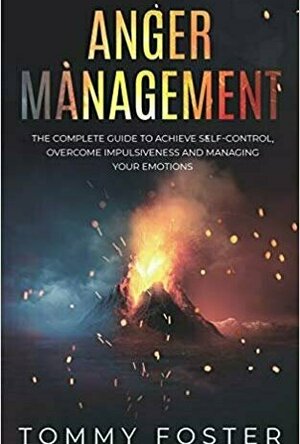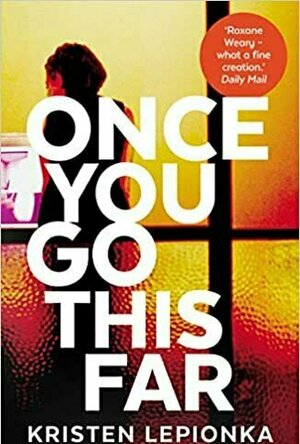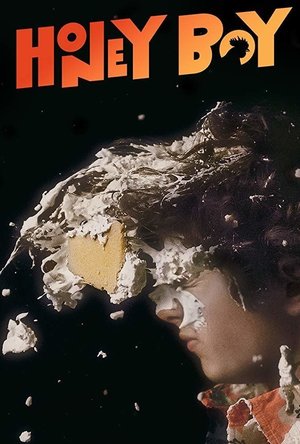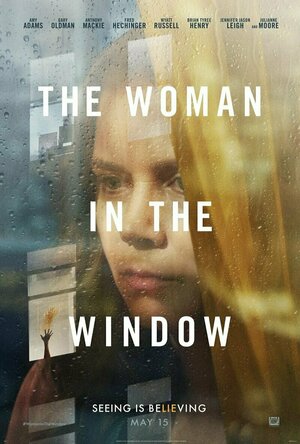This book rightly starts out with a disclaimer that it is not responsible for anything that someone may decide to do after reading it. It then moves onto an introduction and explains what anger is and where it comes from. These ideas will continue to pop up through the remainder of the book. It talks about the different types of anger that someone can have depending on what is going on internally and what caused the anger in the first place. Once of the main focuses of this book was how anger can effect our lives and relationships in both a positive and negative way depending on how we handle the anger itself. The ways that anger can do damage to our own self-image and even cause an endless loop of brooding and depression are also discussed at length.
Once the background information has been well established the book moves on to different ways of managing anger. Multiple ideas are offered. Some such ideas are to try to see things through the eyes of the person you are angry at or to actively listen because miscommunication could be an underlying cause. There is even an entire section towards the end devoted towards anger in the home and how to fix it before it gets out of hand and tears the family apart.
I liked how this book presented anger as a natural and healthy emotion. All too often anger is seen as a negative emotion and this book works to dispel that myth. The tone is also understanding and offering explanation instead of condescending, a welcome change. What I didnt like is that unfortunately this book is in desperate need of a good editor. I am not typically one to complain about spelling or grammar but this book had issues that I could not ignore. In spots it actually becomes difficult to read because of these errors and the wording.
People wanting to get a handle on their anger will benefit from this book the most. At the same time those who find themselves frequently around someone who has problems with how they express anger will benefit by learning where that anger comes from. I rate this book a 2 out of 4. While this book really could be a helpful guide I can not give it a higher score in its present state. People that feel they could benefit from a self-help book such as this one are encouraged to ignore the errors and read it anyway.
https://nightreaderreviews.blogspot.com/
https://www.facebook.com/nightreaderreviews/
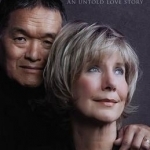
Joni and Ken: An Untold Love Story
Book
It was not a typical Sunday morning for Joni Eareckson. Sure, she was in her regular place along the...
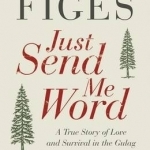
Just Send Me Word: A True Story of Love and Survival in the Gulag
Book
From Orlando Figes, international bestselling author of A People's Tragedy, Just Send Me Word is the...
Kristy H (1252 KP) rated Once You Go This Far in Books
Jul 9, 2020
Private investigator Roxane Weary is out for a stroll when another hiker, Rebecca Newsome, falls to her death on a nearby trail. Her daughter, Maggie, doesn't think it was an accident, and she hires Roxane to look into the the incident, believing strongly that Rebecca's ex-husband, Keir, a former cop, was responsible. Roxane learns quickly that Keir is a bit of a jerk, but did he kill his ex? Roxane soon finds herself driving between Detroit and Canada, following the path of Rebecca's last days. Soon she's embroiled in the Fellowship, a mega-church founded by Joel Creedle and talking to Constance Archer, a wealthy businesswoman who is now running for office. Roxane's running herself so ragged she can barely make time for herself, let alone Tom, her sometimes romantic interest. Not to mention, things are heating up in her case, and she may find herself in danger, yet again.
"Only bad things happened when it was cold out, as it was becoming now."
This is one of the best detective serious out there, hands down, and I wish that Kristen Lepionka and Roxane Weary were household names. I adore these books and this one may be my favorite yet, which is high praise, as I've loved every book since the first.
"That was the thing about mysteries--no one ever deviated from the routine until the moment they did."
Roxane is her own person--a witty, intelligent private investigator who, oh yeah, just happens to be bisexual (and not a side character or the villain of our tale). Book four finds her working on a perplexing case, but also dealing with some personal growth: having to confront emotions and relationships, dreaded words in Roxane's world. I loved the balance of the mystery and Roxane's personal life in this one.
"Not knowing was hard for me. It always was."
Reading these books is like falling back with familiar friends--Lepionka captures Roxane and her crew perfectly: her brothers and mom; her on again/off again boyfriend Tom and ex-girlfriend, Catherine; her work partners; and more. She expertly portrays Roxane's wonderful sarcasm and her inability to commit. Here, we see Roxane dealing with a bombshell about her father's past--poor Roxane: she can never quite escape the shadow of her father, a former cop.
But, of course, we also read for the mystery, and this is a great one--Lepionka takes us in the world of an Evangelical church while delving into Rebecca Newsome's past, her relationship with her daughter, Maggie, and the many secrets Roxane uncovers. She also throws in Rebecca's wonderful spunky elderly neighbor who keeps things lively. This was an excellent mystery that kept me guessing (and worrying for Roxane's safety)--it's timely, interesting, and suspenseful.
Highly recommend this book and the entire Roxane Weary series. 4.5 stars.
Reed Morano recommended Honey Boy (2019) in Movies (curated)
BankofMarquis (1832 KP) rated The Woman in the Window (2021) in Movies
May 24, 2021
For…THE WOMAN IN THE WINDOW is no Rear Window, nor is it intended to be. It has many, many elements that are the same as Rear Window (most notably, the setup: a housebound person thinks they have witnessed a murder in a neighboring apartment), and THE WOMAN IN THE WINDOW is just like Rear Window…until it isn’t.
And that’s when I started to like this film, when I stopped comparing it (in my head) to Rear Window.
Based on the Best Seller by A.J. Finn (adapted for the screen by Tracy Letts who also appears in the film), THE WOMAN IN THE WINDOW tells the tale of Anna Fox, an agoraphobic who watches life go on outside her window. When she thinks she has witnessed a murder, she (and the audience) must decide is it real? Did she truly witness a murder? If so, who dunnit? If not, is she just hallucinating things? Is Anna crazy?
The answers to these questions were satisfying enough to me that I ended up enjoying the film experience that I had - but I have to be honest and tell you that, for awhile, my enjoyment of this film was hanging by a thread.
Amy Adams (ENCHANTED) is terrific - if unspectacular - in the title role. Her Anna Fox is murkey (that is meant as a compliment) and struggles through most of the film trying to determine what is real and what is an illusion. Adams does a “journeyman’s” job with this role. She acts her way through it in such a workmanlike fashion that I almost forgot that it is Adams on the screen.
Wyatt Russell (Kurt’s son who is also the new Captain America in THE FALCON AND THE WINTER SOLDIER) fares the best of the Supporting players for he has the most to do. Unfortunately, Director Joe Wright (ATONEMENT) and Screenwriter Letts wastes such strong actors as Gary Oldman (DARKEST HOUR), Julianne Moore (STILL ALICE), Anthony Mackie (The Falcon in the Marvel Movies), Jennifer Jason Leigh (HATEFUL 8), Brian Tyree Henry (GET OUT) and Letts himself in terribly underwritten roles that serve (mostly) as red herrings - and each of their characters are interchangeable and forgettable.
And that, ultimately, is where this film comes apart. While I cared about Anna and the solution to the mystery - I didn’t care very much about the other characters involved.
Which is why, I think, I’ll pull my DVD of Rear Window out and watch that film for the umpteenth time.
Letter Grade: B
7 Stars (out of 10) and you can take that to the Bank(ofMarquis)
Debbiereadsbook (1664 KP) rated Misdemeanor (Responsible Adult #1) in Books
Jul 6, 2021
Micky is doing his best to keep his head above water. Looking after his disabled little brother, Flynn is top of that list. getting this new job will help a great deal. He just didn't plan on Danny, his boss. Danny is still suffering after a bad break up, but Micky is a breath of fresh air, even if the man has so many layers. Can they make it work?
Micky is trying, dammit, he really is! He lost his mum a few years ago, and his dad is absent and a deadbeat. Looking after Finn fell on to Micky cos Micky wants to keep Flynn close, to keep the two of them together. Flynn's special needs won't be easy for a stranger to deal with but Micky can, for the most part. But Micky is hurting, deep inside. He won't admit it, not to anyone, and certainly not to his best friend who is a career crook! But Danny? Danny picks at him, peels away his onion layers and digs deep til Micky really can't help himself.
The world though, is out to get Micky and he has to keep one step ahead of everyone trying to take Flynn away from him.
I loved this, bar one thing . . well maybe BECAUSE of this one thing I loved it, I'm still not sure yet!
Micky is not a bad person, he's just not made the best of choices up to now, but the job with Danny is step in the right direction. He tries HARD, he really does. Flynn is his world, but Danny sneaks in.
Danny is lovely, he knows Micky has his own stuff to deal with, but he will be there for Micky, should Micky need him. And I think Micky DOES need Danny, deeply. Micky might not admit to that fact, but Micky needs Danny, just as much as Flynn needs Micky. And I loved the pair of them, I really did!
That one thing?? Cliff hanger, baby, a massive cliff hanger that my poor kindle is lucky to have survived! Because this is NOT a complete story, no ma'am. This is the first in a trilogy! I didn't really pay attention to the other books, when I was asked if I wanted to read this one, just that THIS book sounded really good. Now, going forward, I will pay more attention, and maybe wait till I have all three parts in trilogies available to me, should I wish to read them!
I need book 2, like yesterday cos fooooooooooooooooooooooooooook me, these guys are gonna kill me, I'm sure, before they get to their Happy Ever After! Oh! Ms White, they DO get there, don't they?? Oh god I hope so!
Anyway!
Loved it!
5 full and slightly dented stars (cos they were flung across the room when I finished this!)
**same worded review will appear elsewhere**

Virtual Gastric Band Hypnosis - Lose Weight Fast!
Health & Fitness and Medical
App
AS SEEN on CNN, BBC, Daily Mail, Chat Magazine, Vogue and Marie Claire... the American, British (and...

Adult Emoji for Lovers
Social Networking
App
3,000,000 Naughty Couples Served! • "Love this app to send romantic and even sexy emoji's to my...
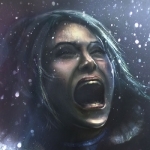
Forgotten Memories: Alternate Realities
Games and Entertainment
App
Finalist in the CVA videogames awards 2015. Nominations: Best Audio, Best Original Music, Best Indie...
